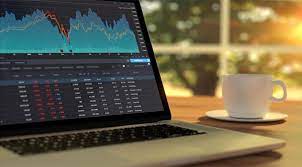When it comes to trading, a Contract for Difference or CFD is an exciting way to get involved in the financial markets. With CFDs, you don’t have to own the underlying asset to trade it. Instead, you can speculate on the price movements of securities or other financial instruments, such as forex, commodities, and indices. If you’re interested in trading cfds, this article will provide you with an overview of the basics you need to know.
What are CFDs?
A CFD is a contract between two parties, a buyer and a seller, wherein they agree to exchange the difference between the opening and closing prices of an asset. The underlying asset could be anything from a stock, a currency pair, a commodity, or an index. As a trader, you are not buying or selling the asset itself but taking positions based on the price movements of that asset.
How do CFD trades work?
Let’s say you want to trade a CFD on a stock. You can either speculate on the price going up (go long) or going down (go short). You would buy the CFD if you think the price will go up and sell it if you think the price will go down. The profit or loss in a CFD trade is determined by the difference between the opening and closing prices.
CFD Trading Platforms
CFD trading is usually done through an online platform that connects you to a brokerage firm. The platform offers real-time pricing information and allows you to place trades, manage your positions and monitor your account. A good trading platform should also provide you with analytical tools, market news, and educational resources to help you make informed trading decisions.
Risks of CFD Trading
While CFD trading can be a profitable way to invest, it also carries certain risks. As with any form of trading, you can lose money if you’re not careful. CFDs are leveraged products, which means that you only need to deposit a small percentage of the overall value of the trade. While this amplifies your potential profits, it also amplifies your potential losses. It’s important to set stop-loss limits to minimize your losses and to never invest more than you can afford to lose.
Important Considerations when Trading CFDs
Finally, it’s important to remember that CFD trading comes with certain considerations. One of the most important is the need to conduct ample research before investing. You need to understand the markets and the underlying assets you’re considering, as well as develop a trading strategy that aligns with your financial goals. Additionally, you should work with a reputable broker to ensure you have access to reliable trading tools and resources.
Conclusion:
In conclusion, CFD trading can be an exciting way to get involved in the financial markets. Understanding the basics of CFD trading is essential before starting, and it’s important to conduct ample research before investing. By working with a reputable broker, setting stop-loss limits, and investing wisely, you can maximize your chances of success.



